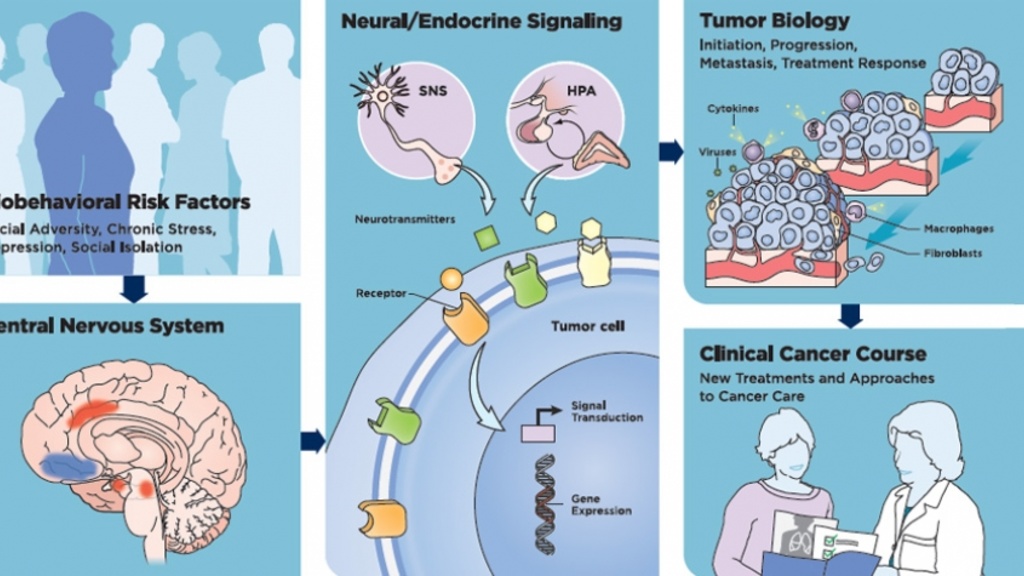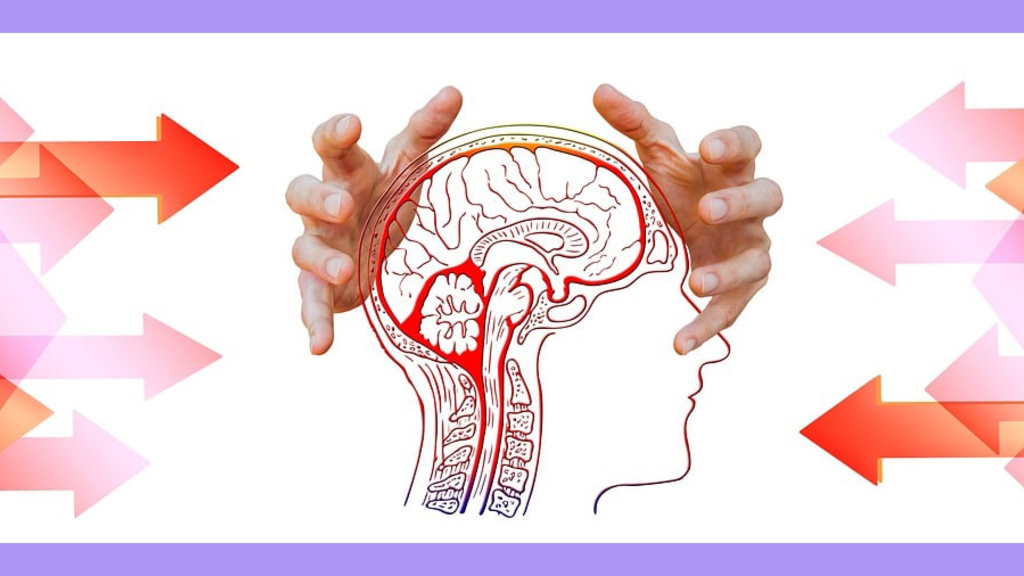The main projects in the laboratory examine effects of psychological stress on neuroendocrine function, inflammation, and tumor biology. We also study adjustment to chronic illness, particularly cancer.
Currently, we are conducting a 5 year multi-site intervention study for ovarian cancer survivors sponsored by the National Cancer Institute. We are examining the efficacy of a mindfulness stress management intervention vs. a health promotion intervention to improve quality of life and well-being in ovarian cancer. Each intervention group includes 6-8 survivors; groups are conducted by a psychologist or health educator, and are delivered live online.

Multidisciplinary Approach to Pelvic Pain
Interstitial cystitis is a chronic painful inflammatory bladder condition, more frequently seen in women, that results in pelvic pain, urinary frequency and urgency. A similar condition in men is called prostatitis. We are part of the National Institute of Diabetes and Digestive and Kidney Diseases (NIDDK) Multidisciplinary Approach to Pelvic Pain (MAPP) network to study the role of inflammation and dysregulation of the stress response systems (such as the hypothalamic-pituitary-adrenal axis) in this condition.

Biobehavioral Oncology
A main focus of the Lutgendorf laboratory is to investigate how stress is related to tumor growth in ovarian cancer patients. This work has been funded by the National Cancer Institute.
Epidemiological studies in general support the presence of a relationship between stress and cancer progression. The goal of our work is to understand biobehavioral mechanisms that may underlie this link. We are investigating relationships between life stress and the immune response, angiogenesis, and other mechanisms of tumor growth in ovarian cancer. Recent work has revealed strong relationships between stress and the pro-tumor effects of tumor-associated macrophages. Additionally we have documented a distinctive gene expression fingerprint in primary ovarian tumors from patients with low social support and high depressive symptoms. The goal of this work is to ultimately develop innovative behavioral and pharmacological interventions that may contribute to longer survival in ovarian cancer patients.
Dr. Lutgendorf served as a core member of the National Cancer Institute Network on Biobehavioral Pathways in Cancer. The mission of this network was to accelerate the translation and communication of biobehavioral discoveries to advance clinical cancer care. The Network fosters research excellence through the integration and dissemination of relevant scientific discoveries and the identification, support, and communication of new research directions in the field of biobehavioral pathways in cancer.

Integrative Medicine Research
We have completed two studies examining effects of a complementary (CAM) medicine intervention on immune function in cancer patients.
One is a randomized study of effects of a CAM called “Healing Touch” vs. relaxation vs. standard care on immune function in cervical cancer patients. This was funded by the National Center on Complementary and Alternative Medicine and was part of the Frontier Medicine Research Center at the University of Connecticut Health Sciences Center.
The second was a randomized study of effects of “Healing Touch” vs. standard care on immunity and fatigue in breast cancer patients. This study was funded by the National Cancer Institute. Ongoing work in this area includes an examination of Healing Touch effects on metabolic changes during chemoradiation.
Recent graduate student projects
- Distress and quality of life in rural and urban ovarian cancer patients
- Resilience and stress over time in ovarian cancer
- COVID-related distress and resilience in cancer patients
- Five year survivors in ovarian cancer
- Toll-like receptor 4 activation and chronic pelvic pain
- Diurnal cortisol slope and survival in ovarian cancer
- Inflammation, HPA axis and sleep in ovarian cancer
- Resilience and tumor stress hormones in ovarian cancer
- Childhood adversity and inflammation in healthy adults
- Examination of sleep in ovarian cancer patients
- Effects of cancer-induced inflammation on depression in ovarian cancer
- Post treatment anxiety in breast cancer patients
- Fear of recurrence among breast cancer patients
- Relationships between quality of mental imagery and physiological changes during relaxation and stress
- Study of relationships between distress and cortisol dysregulation in ovarian cancer patients
